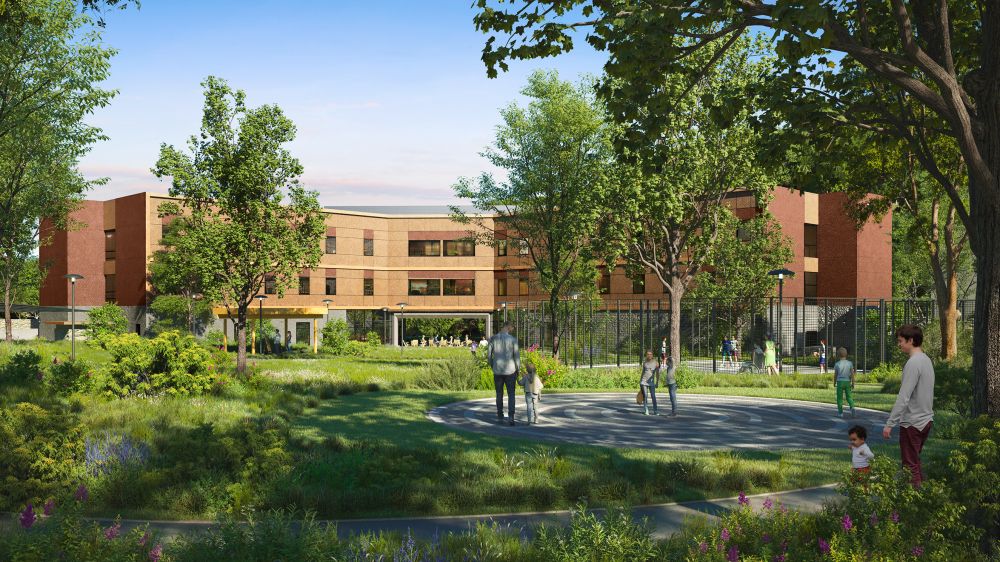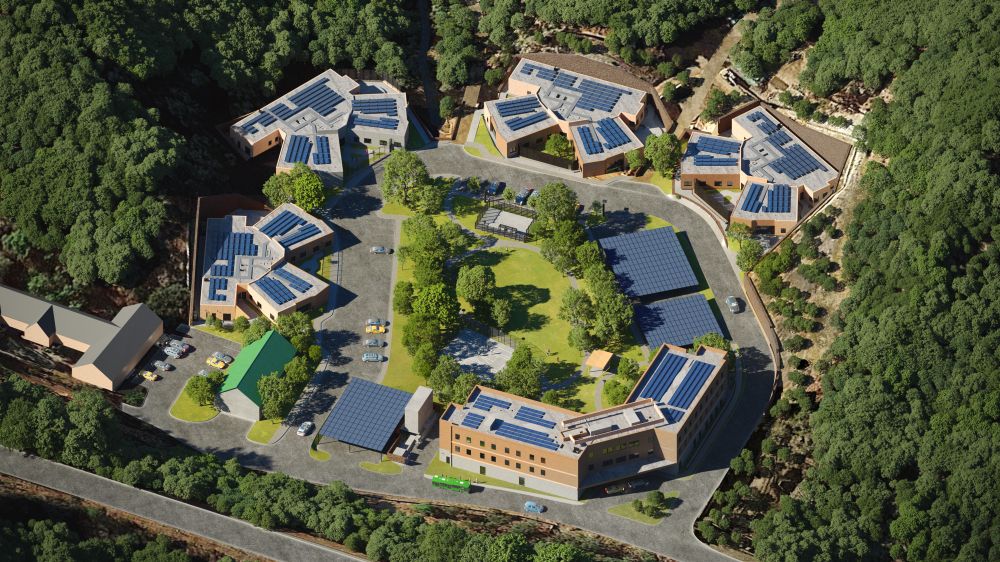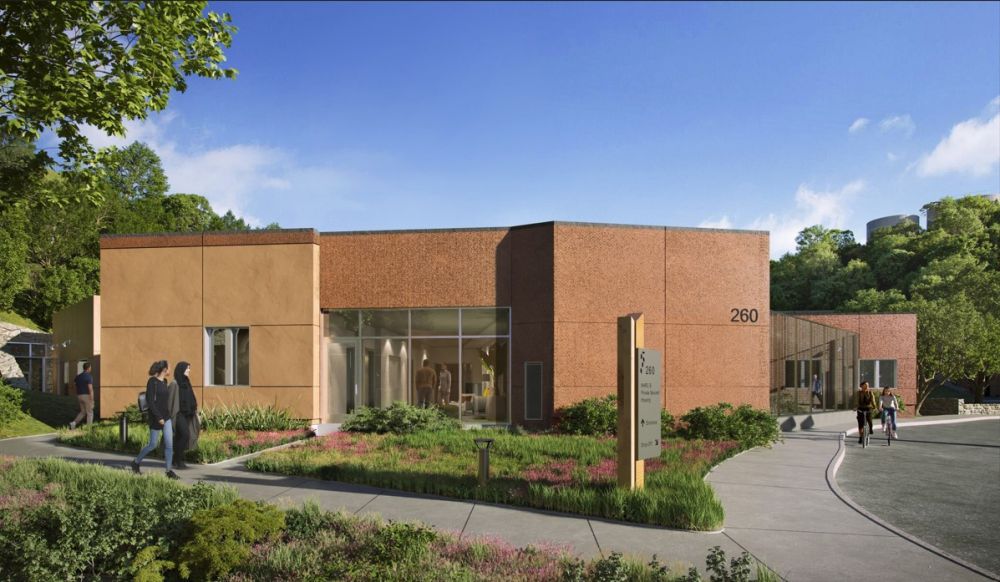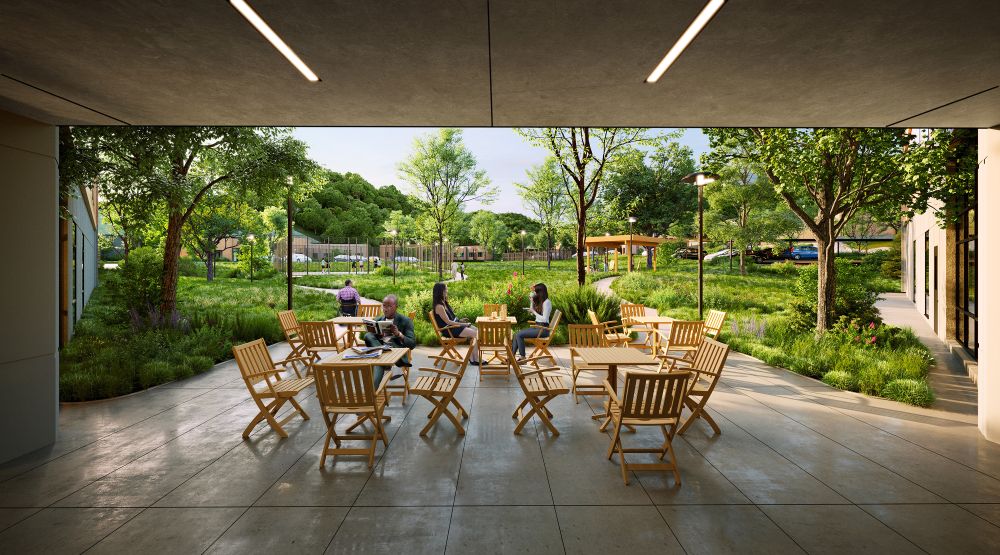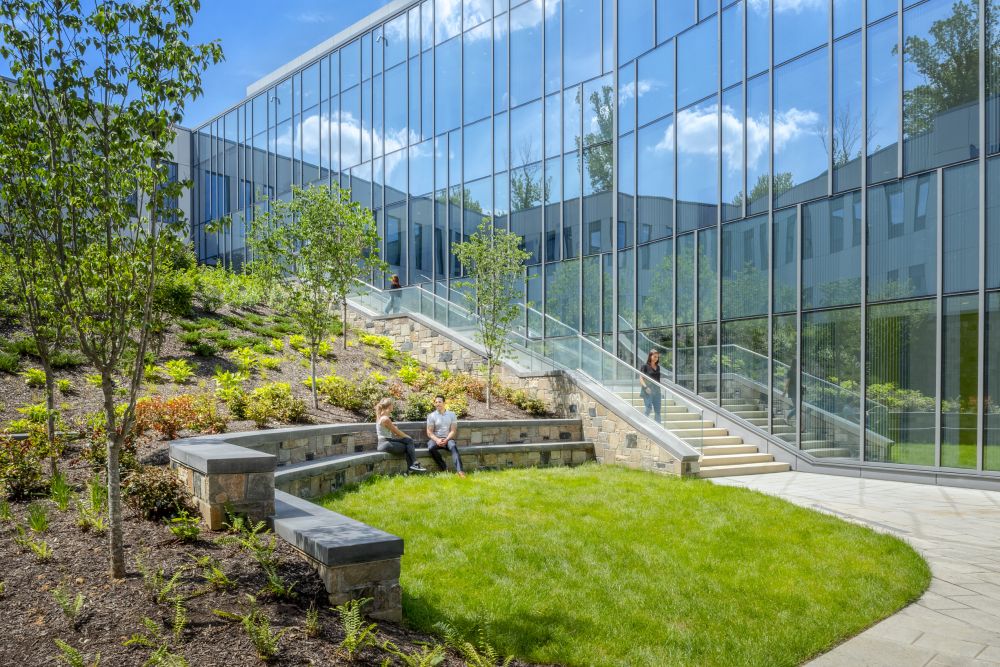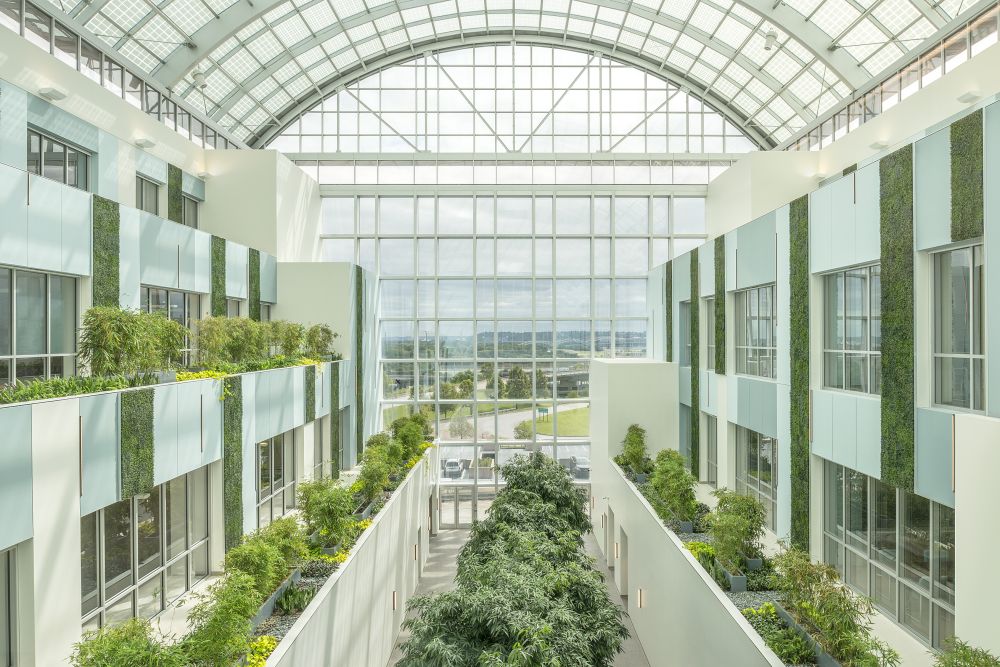Cordilleras Mental Health Campus
Future-proofing the nation’s largest net zero energy mental health campus
- Client
- County of San Mateo, California
- Location
- Redwood City, California, United States
- Size
- 77,600 square feet
- Status
- In progress
The Cordilleras Mental Health Campus, located on a wooded hillside south of San Francisco, was originally built as a tuberculosis hospital in the 1950s. It transformed into an inpatient mental health campus in the 1970s, and now the wooded campus is transforming once more into a modern and resilient mental healthcare facility.
Inspired by the profound influence of nature on mental well-being, the revitalized campus will harness the power of its surroundings to become a community for patients and the county alike.
In collaboration with San Mateo County, the new Cordilleras campus will be the first net zero energy mental health facility in California and the largest in the nation. The project will generate power on-site using rooftop solar panels installed on both the buildings and parking areas, offsetting its energy consumption. Data analytics based on the average weather, climate activity and types of engineering systems were used to predict the campus’s energy needs and verify that the solar arrays were sized to meet those needs. Cordilleras is targeting a Gold LEED certification.
Testimonials
The campus includes four single story, 16-bed rehabilitation cottages focused on specific populations and their tailored treatments, for clients with severe mental health issues. The cottages are K-shaped to provide optimal sunlight and views while also providing enough insulated walls to prevent heating and cooling escape.
An adjacent campus center offers activity space on the first level and includes a kitchen, chapel, retail store and primary healthcare offices. The second level houses co-housing rooms on levels two and three for 57 people, with less severe mental health disabilities who are able to work in the community during the day. San Mateo County leadership wanted the new Cordilleras to not be just buildings retrofitted for mental healthcare, but ones that were tailored for the needs and healing journey of that patient population. County residents were included in the design and planning process to ensure it would be a place for and of its community.
Biophilia, a concept that suggests humans have an inherent and instinctive affinity for nature, was an integral part of the design process, as research shows it helps reduce anger, anxiety, tension, fatigue and more. Textures and materials in the interior spaces align with the surrounding nature, providing familiar and calm environments that allow for a sense of control and safety for patient residents. Outside, the buildings will be enveloped in trees, creating a tranquil environment that supports therapeutic healing.
While the surrounding forests and canyons provide a restorative healing environment, there were also resiliency measures put into place to increase the ability to stay operational in the event of a natural disaster. A water tank was added to the site for backup domestic water for the facility and to provide additional hillside fire mitigation. Backup generators can supply 72 hours of power.
Conservation measures were taken during construction to protect endangered wildlife, with construction activity restricted to just 10 feet from buildings and pavement, and rare plants and endangered animal habitats were identified during surveys and were avoided.
